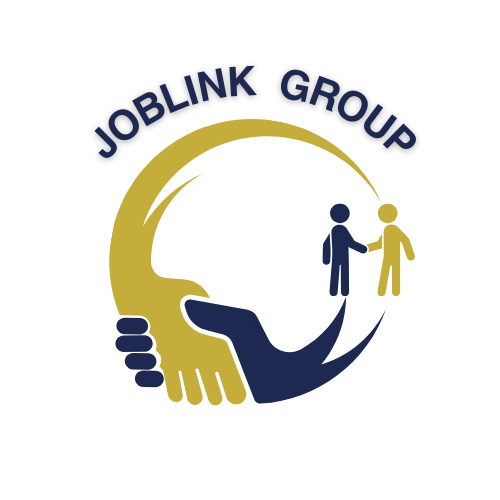Emotional Intelligence in the Workplace: Why It Matters and How to Develop It
Emotional intelligence (EQ) has become a vital component for career success and workplace well-being. Defined as the ability to understand, use, and manage emotions effectively, EQ influences how individuals interact with others, handle stress, and navigate challenges in a professional setting. This article will explore the significance of emotional intelligence in the workplace, its impact on professional success, and practical strategies for developing and enhancing EQ.
What Is Emotional Intelligence?
Emotional intelligence refers to the capacity to recognize and manage one’s own emotions and the emotions of others. It consists of five key components:
- Self-Awareness: The ability to recognize one’s emotions and understand their impact on thoughts and behavior. Self-awareness allows individuals to assess their strengths and weaknesses accurately.
- Self-Regulation: The capacity to manage and control one’s emotional responses in various situations. It involves staying calm under pressure, adapting to changes, and avoiding impulsive actions.
- Motivation: The drive to pursue goals with energy and persistence. Highly motivated individuals are often more resilient and committed to achieving long-term objectives.
- Empathy: The ability to understand and share the feelings of others. Empathy is essential for building relationships, understanding diverse perspectives, and providing support to colleagues.
- Social Skills: The competence to manage relationships effectively and navigate social interactions. Good social skills include clear communication, conflict resolution, and collaboration.
The Impact of EQ on Professional Success
Emotional intelligence has a significant effect on various aspects of professional life, influencing leadership, teamwork, and conflict resolution.
Leadership
Leaders with high emotional intelligence are better equipped to inspire and motivate their teams. They are able to recognize the emotional needs of their employees, offer constructive feedback, and create a positive work environment. Emotional intelligence enables leaders to build trust and rapport with their teams, which leads to higher levels of engagement and productivity.
Teamwork
In a collaborative environment, emotional intelligence plays a crucial role in enhancing communication and cooperation. Team members with high EQ are more likely to share ideas, offer support, and resolve disagreements amicably. By understanding their own emotions and those of their colleagues, they can work together more effectively to achieve common goals.
Conflict Resolution
Conflicts are inevitable in any workplace, but individuals with strong emotional intelligence can manage them more constructively. They approach disagreements with empathy and active listening, seeking to understand different perspectives and find mutually beneficial solutions. This ability to handle conflict reduces workplace stress and contributes to a healthier work environment.
How to Improve Your Emotional Intelligence
Developing emotional intelligence is a continuous process that requires intentional effort. Here are some strategies to help improve EQ in the workplace:
1. Practice Mindfulness
Mindfulness involves paying attention to your thoughts, feelings, and physical sensations in the present moment without judgment. It helps enhance self-awareness by allowing you to observe your emotional reactions and understand their triggers. Mindfulness practices, such as meditation, deep breathing, or journaling, can help you stay calm and centered, even in high-stress situations.
2. Develop Active Listening Skills
Active listening is a critical aspect of emotional intelligence. It involves fully focusing on the speaker, understanding their message, and responding thoughtfully. To practice active listening:
- Maintain Eye Contact: Show engagement by looking at the speaker.
- Avoid Interrupting: Let the speaker finish their thoughts before responding.
- Ask Clarifying Questions: Seek to understand the message better.
- Reflect on What Is Being Said: Summarize the speaker’s points to confirm understanding.
3. Work on Self-Regulation Techniques
Learning to control emotional impulses is a key part of self-regulation. Techniques such as taking a moment to breathe deeply before reacting, using positive self-talk, or stepping away from a stressful situation can help manage emotional responses more effectively.
4. Practice Empathy
Empathy can be developed by actively trying to understand others’ feelings and perspectives. Some ways to practice empathy include:
- Showing Genuine Interest: Ask colleagues about their experiences and listen without judgment.
- Validating Emotions: Acknowledge others’ feelings, even if you don’t necessarily agree with their views.
- Putting Yourself in Their Shoes: Try to imagine how you would feel in their situation.
5. Engage in Stress Management Activities
High levels of stress can negatively impact emotional intelligence. Regular stress management activities, such as exercise, yoga, hobbies, or spending time with loved ones, can help maintain emotional balance. Staying physically active and taking breaks during the workday also contribute to overall well-being.
EQ and Career Advancement
Emotional intelligence is not only beneficial for day-to-day interactions but also plays a vital role in career advancement. Here’s how a high EQ can impact your career:
1. Better Job Performance
Employees with high emotional intelligence are often more effective in their roles because they can manage their emotions, stay motivated, and build strong working relationships. These skills translate into higher job performance, allowing individuals to exceed expectations and achieve organizational goals.
2. Increased Job Satisfaction
Emotional intelligence can enhance job satisfaction by fostering a positive mindset and enabling individuals to handle workplace stress better. When employees feel valued and have healthy relationships with colleagues and supervisors, they are more likely to enjoy their work and remain committed to their jobs.
3. Greater Leadership Opportunities
High EQ is a distinguishing factor for leadership roles, as it equips individuals with the skills needed to inspire and guide teams. Leaders with strong emotional intelligence can adapt to changing circumstances, empathize with team members, and resolve conflicts constructively, making them effective in managing people and driving results.
Conclusion
Emotional intelligence is a key factor that can significantly impact career success and workplace well-being. By understanding and improving the components of EQ—self-awareness, self-regulation, motivation, empathy, and social skills—professionals can enhance their leadership abilities, build stronger teams, and handle conflicts more effectively. Developing emotional intelligence is a continuous process that requires conscious effort, but the rewards, such as better job performance, increased job satisfaction, and more leadership opportunities, make it well worth pursuing.
Cultivating emotional intelligence not only benefits individual career growth but also contributes to a more harmonious and productive workplace, creating a positive impact that resonates throughout the organization.

